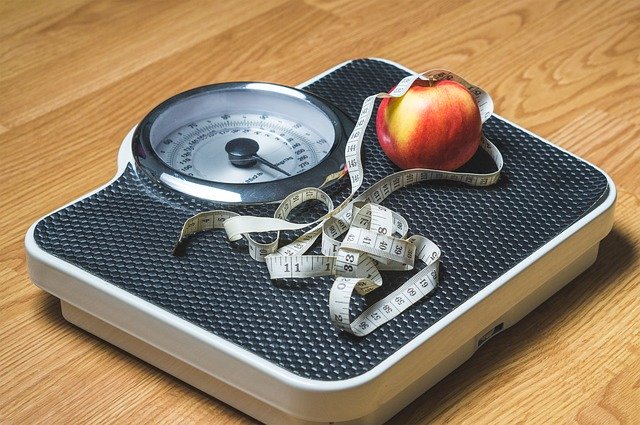
One often hears that more and more people are overweight. This also has serious consequences for the healthcare system, since obesity rarely comes alone. People who are very overweight often suffer from disorders of the fat metabolism and carbohydrate metabolism and above all from cardiovascular diseases. According to a British study, Half of the women in Germany and two thirds of the men are overweight and thus live a lot more dangerously. When you look at the numerous diseases and risks, it is surprising that statistically strong overweight people live significantly shorter lives as slim.
complaints and comorbidities
Often the first complaints are sleep apnea, shortness of breath when climbing stairs, lower back and joint pain, and increased tendency to sweat. Much more dangerous, however, are secondary and concomitant diseases that develop insidiously over decades. Medicine is now familiar with many chronic disorders and diseases. Being overweight affects the heart the most, because it has to work harder the more the normal weight is exceeded, since more body mass has to be supplied with blood. In addition, there is the fact that many overweight people no longer feel comfortable with physical exercise due to their corpulence. As a result, they become inactive and move less. That risk of a heart attack according to statistics, increases to double if the normal weight is exceeded by only 20%.
The heart in obese people constantly has to do more work so that the fatty tissue is supplied with sufficient blood. In addition, more sodium and water are retained in the body, which results in the development of high blood pressure, which ultimately puts a strain on the heart. The consequences are heart attacks, angina pectoris and chronic cardiac insufficiency.
Symptoms of Angina Pectoris repeatedly lead to misinterpretations and are very different. Back and abdominal pain are also among the symptoms, as well as a tugging in the heart area and shortness of breath. The heart attack is caused by a drip of blood that ends up blocking a coronary artery. The reason for the impermeability is often a narrowed coronary artery. In the case of cardiac insufficiency, the heart no longer pumps enough blood into the circulatory system and slowly loses strength. Heart diseases are therefore often a consequence of being overweight and can also have other serious consequences themselves.

What is considered overweight?
Do you know the saying: "I'm just too small for my weight"? That's the humorous paraphrase for overweight. But how heavy would be normal for what size? Whether the real weight is called normal weight, underweight, overweight or even obese depends on the relationship between body size and body weight. Although also body fat content matters plays. There are various formulas and methods to calculate the weight status. The most common is the body mass index, known as BMI. According to the current state of knowledge, it enables the best assessment, even if it does not provide any information about body fat mass. This can only be determined by special measurements that are carried out in certain cases.
Criterion BMI
In any case, many medical professionals, researchers and institutions use BMI as a marker to classify weight status, including the World Health Organization (WHO).
According to the WHO scheme, an adult with a BMI of:
- 18,5 as underweight,
- between 18,5 and 25 as normal weight,
- from 25 to 30 as overweight,
- over 30 people talk about obesity.
BMI is calculated using the following formula: BMI= where kg stands for weight and m for height.
The waist circumference is often used to assess the weight. Accordingly, obesity begins in women from a circumference of 88 cm and in men from a circumference of 102 cm.

Is every kilo over normal risky?
Many publications on this subject speak of the obesity paradox. It says something like that a few pounds more could be unproblematic or even beneficial. While the risk of disease increases in healthy people who are overweight, overweight patients have better chances of disease than patients of normal weight. However, these conclusions from several study results are controversial, and more and more scientists doubt them.
With regard to cardiovascular diseases, many experts are convinced that the obesity paradox does not apply. This was also the conclusion of the authors of a Mendelian randomization study, the results state: "A higher body mass index (BMI) is a risk factor for cardiometabolic diseases. However, the underlying causal relationships remain unclear."
Obesity is common
Obesity often comes gradually, gram by gram, and is difficult to get rid of. Any calorie eaten that the body does not burn is stored as fat. For bad times when there is a lack of food. Since this rarely happens in this country, fat pads form, which sometimes become padding and appear as kilos on the scales.
If your weight also exceeds the normal weight limit, you belong to the majority of the German population. According to the Leopoldina, 60 percent of Germans are now overweight, with almost a quarter! considered obese. Researchers from the National Academy of Sciences (Leopoldina) dealt extensively with the topic and published their findings in the Discussion paper “Overweight and obesity: Theses on how to contain the epidemic.
Accordingly, the causes of this development include individual, social, political and economic aspects. Genetic predispositions are just as important as diet and lifestyle habits. In order to stop the trend, a number of measures are therefore necessary. You cannot change the environment, food production, infrastructure, etc. on your own; politics and society as a whole must take care of that. For more exercise in your everyday life and around you healthier diet you can take care of yourself.
In cited sources and other publications, the BMI over 25 is not itself called a disease, but is considered a risk factor for certain diseases such as heart disease. "The less fat, especially around the abdomen, the lower the risk of heart disease later', notes study author Stamatina Iliodromiti, for example.

Lose weight - but how?
You want to lose weight, not just for the sake of your health. But how? No diet has helped so far. Simply cutting back on calorie intake won't lead to weight loss in the long run. Many sufferers will confirm this. You can also read about the reasons for this in the paper, as well as the countermeasures. These simply mean: move more and eat healthily.
If you want to reduce your excess weight permanently, you have to put your lifestyle and eating habits to the test and change a few things. There are tips that probably everyone has heard or read at some point. For example, walking the stairs instead of taking the elevator, eating less fat and sugar, but more vegetables. That would be a start.
In addition, experts recommend sporting activities. "Regular exercise is a central pillar of preventive medicine and can significantly reduce the risk of developing cardiovascular disease" explains Prof. Dr. Jürgen Scharhag from the Saarland Institute for Sports and Preventive Medicine.
In general, this applies to all people, whether overweight or normal weight. Whether you can start exercising without any problems and which sports are suitable for you depends on your personal situation. Consult your doctor, especially if you have not exercised for a long time, are very overweight or have any health problems.
Endurance sports such as cycling, walking and cross-country skiing boost calorie burning, while strength training helps build muscle. Both are good for health, not just for the heart. Did you even think that Riding an e-bike strengthens your heart and circulation?
In connection with a healthy diet, sporting activities offer good opportunities to reduce excess weight and at the same time minimize the risk of illness. The Assmann Foundation for Prevention recommends three points for heart-healthy food:
- little saturated fats, unsaturated fats, especially monounsaturated fats, are better
- lots of omega-3 fatty acids
- a lot of plant-based foods, especially fruit and vegetables, grain products, legumes and nuts - whereby the proportion of sugar and white flour products should be low.
You can find more tips in the foundation's brochure.
It won't be easy, otherwise there would be many more slim people. But the effort is worth it, because experience has shown that the quality of life increases with every kilo you lose. The slimmer silhouette and the newly gained endurance contribute to this.
Table of Contents



1 Trackback / Pingback